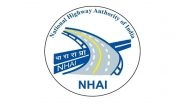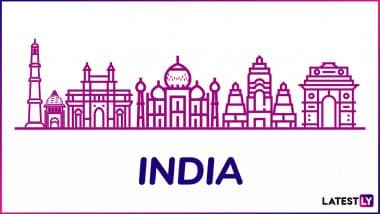New Delhi [India], April 9 (ANI): With an aim to ensure salaries for the workforce involved in laying rails for exclusive freight operations, Dedicated Freight Corridor Corporation of India Ltd (DFCCIL) has made payments of Rs 1500 crore to contractors by the end of March amid the COVID-19 lockdown.The Rs 1500 crore bill clearance for contractors assumes significance as it would facilitate payments to thousands of workers involved in electrical, engineering, civil and other sections in the DFCCIL project."On average we make payment of about Rs 10,000 crore to contractors every year. But this time we did extra efforts to ensure that payments are being cleared by the end of March this year so that those workers involved in the project do not suffer," said DFCCIL Managing Director Anurag Sachhan.The DFCCIL project has suffered a setback due to the COVID-19 pandemic as its ongoing track laying work completely stopped resulting in pushing the completion deadline further.However, the Ministry of Railways has taken several steps to fight COVID-19 threat.The DFCCIL was gearing up to open the 300 km long line between Badaun and Kanpur by March 31, which got postponed due to the lockdown. Till now about 550 km long corridor from Khurja to Badaun and Rewari to Madar is operational for freight operation.The project was approved by the government in 2006, but progress has been slow, and several completion deadlines have been missed due to procedural wrangles, land acquisition problems, and difficulty obtaining environment approvals.DFCCIL was constituted as a "special purpose vehicle" to undertake planning, development, mobilisation of financial resources and construction, maintenance and operation of the corridors. The Rs 81,000 crore project involves the Eastern and Western routes covering a total length of 3,360 km.While the Eastern corridor is from Ludhiana in Punjab to Dankuni in West Bengal, the Western corridor would come up from Jawaharlal Nehru Port in Mumbai (Maharashtra) to Dadri in Uttar Pradesh.The Western corridor will largely carry containers and imported coal between the existing and emerging ports in Maharashtra and Gujarat and the northern hinterland, while the Eastern corridor will mainly transport coal and steel. Once the project is fully operational, the freight trains will run at a maximum speed of 100 kmph compared with an average speed of 27-30 kmph for on the existing rail network. (ANI)
(The above story is verified and authored by ANI staff, ANI is South Asia's leading multimedia news agency with over 100 bureaus in India, South Asia and across the globe. ANI brings the latest news on Politics and Current Affairs in India & around the World, Sports, Health, Fitness, Entertainment, & News. The views appearing in the above post do not reflect the opinions of LatestLY)













 Quickly
Quickly


